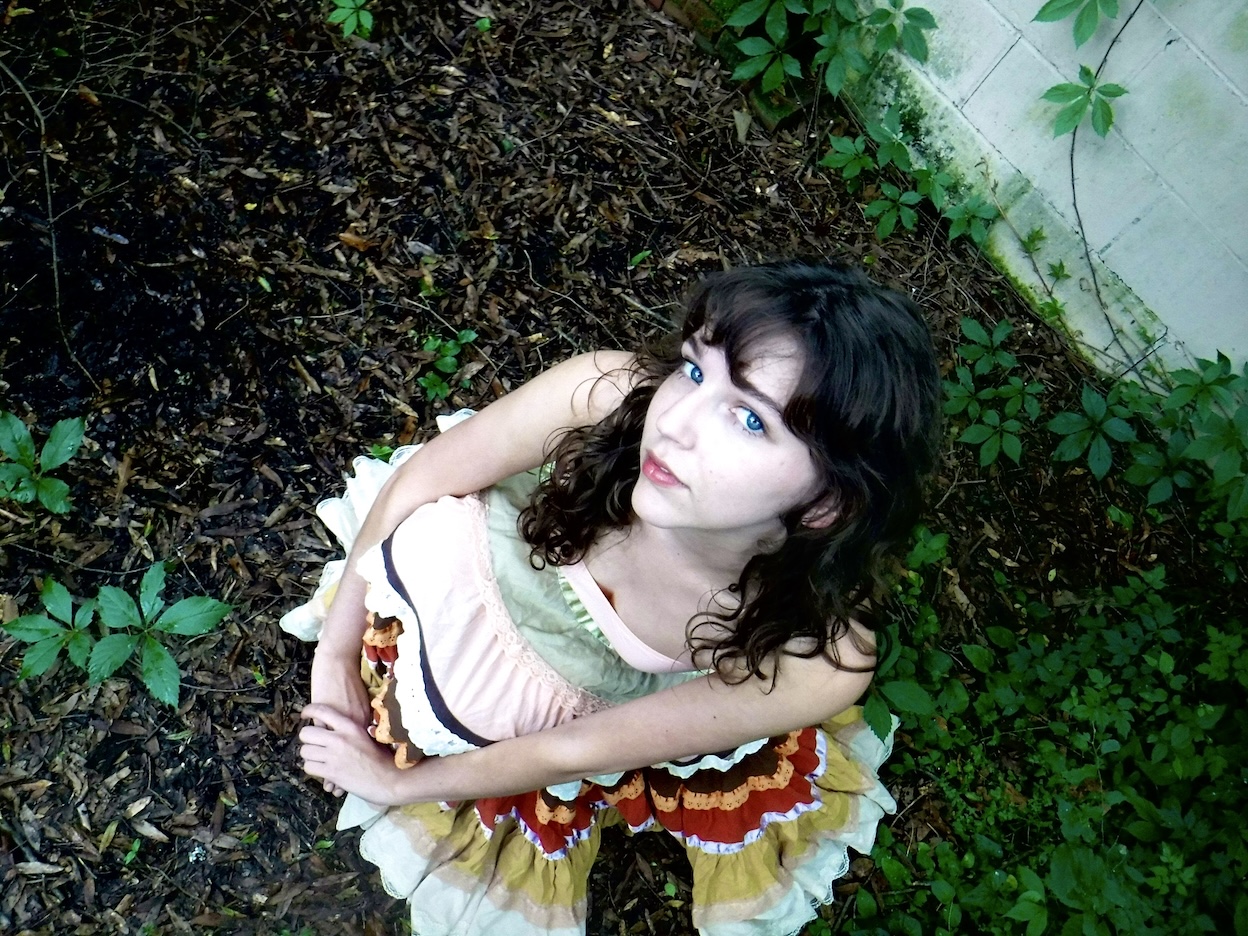When she was in college, Zoë Dominguez challenged herself to write a feminist rock song. She knew that assigning personal stakes to a big social issue would be difficult, but that was the whole point. “It’s hard to write any kind of feminist song,” she says from her home in Memphis, “because you run the risk of sounding like you’re just complaining. That’s something that’s levied against women and is absolutely not valid. But I think a lot of female songwriters have that in the back of their minds.”
Inspired—or, more accurately, outraged—by the Ozempic epidemic and the culture of selling skinniness, she devised a song called “5-10-100,” which opens with a low, grinding guitar riffs and leans into its scowling chorus: “Smile for the camera, I just smile like I’m selling something.” An anthem against complacency, the song has the bravado of Bikini Kill and the righteous urgency of early Sleater-Kinney, but even more crucially, it doesn’t stoop to complain. Instead, it wails. It rages. It conspires. It accuses.
More from Spin:
- Devo, The B-52s Make Touring Team
- Brittany Davis Brings The ‘Thunder’ On New LP
- Noah Cyrus Welcomes Blake Shelton, Bill Callahan On New LP
“5-10-100” anchors her new solo debut, Out the House, released just weeks after she graduated from Rhodes College. It’s an album steeped in the alternative rock of the 1990s, straddling the folksier songwriting of the Lilith Fair roster and the abrasive energy of Lollapalooza’s best years. Dominguez’s songs strike a fine balance between the personal and the political: She addresses big issues in her lyrics, but also maps out her own interior life—not just her anger, but her deepest regrets, her knottiest confusions, her darkest fears, and desires she can’t quite name. “With a lot of ’90s rock, there’s room for female musicians to be angry without sounding explicitly like punk rock. With Sheryl Crow and Liz Phair, there are these quieter acoustic moments throughout their records, but the things they’re saying are still really aggressive. There’s definitely a fire there.”
While she was born well after the 1990s were over, Dominquez has been listening to those artists all her life. Her parents were musicians themselves, her father a bassist who ran a rock camp for kids and her mother an Ani DiFranco superfan who attended Berklee.

When Dominquez was 13, she joined a band of teenage girls covering songs by L.A. glam-punk pioneers the Runaways. “I was Cherie Currie, and I wore a bright silver jumpsuit. It was so ridiculous!”
Dubbing themselves the Queens of Noise, they gradually added more originals to their setlists and started playing shows around their hometown of Nashville. “Back then I didn’t know how to be onstage,” Dominguez admits. I thought you just stood behind the microphone and sang. The summer before I went away to college, we played the Tomato Art Fest and our guitarist’s dad sat me down and made me watch all of Freddie Mercury’s performance at LiveAid. It made me realize that the campy, ridiculous performance aspect of being a rock star is one of the most fun parts, and it was such a great release of all of my hormones. Oh, this isn’t just a fun thing to do with my friends. It’s actually therapeutic.”

When she left Nashville for college in Memphis, Dominguez figured she’d give up music to concentrate on urban studies at college, but she soon realized she missed that connection with an audience. So she played acoustic sets at some clubs around Memphis and corralled a band of friends to add some heaviness and drama to her songs. Out the House was written and recorded while she was still at Rhodes, with most of the songs tracked in Nashville with co-producer/engineer Eric Fritsch (Sheryl Crow, Greta Gaines). Only one song was recorded back in Memphis: Dominguez tracked “5-10-100” at historic Easley McCain Studios, where Pavement, Sonic Youth, and Guided By Voices all made big ’90s albums. “It was one of the first times I felt like I was a serious musician in a real studio. And I got to record my vocals on the last microphone Jeff Buckley ever used before he died.”
With college behind her and her debut available for streaming, Dominguez is scheduling more dates beyond Memphis, and she’s still writing to challenge herself and her listeners. “If you can take something very big and make it incredibly personal to your life, it’s so much easier for the vast majority of people to relate to it. They can find something in it that relates to their own experiences rather than just another topic on the news. Learning that offers me a lot of freedom as a songwriter.”
To see our running list of the top 100 greatest rock stars of all time, click here.



